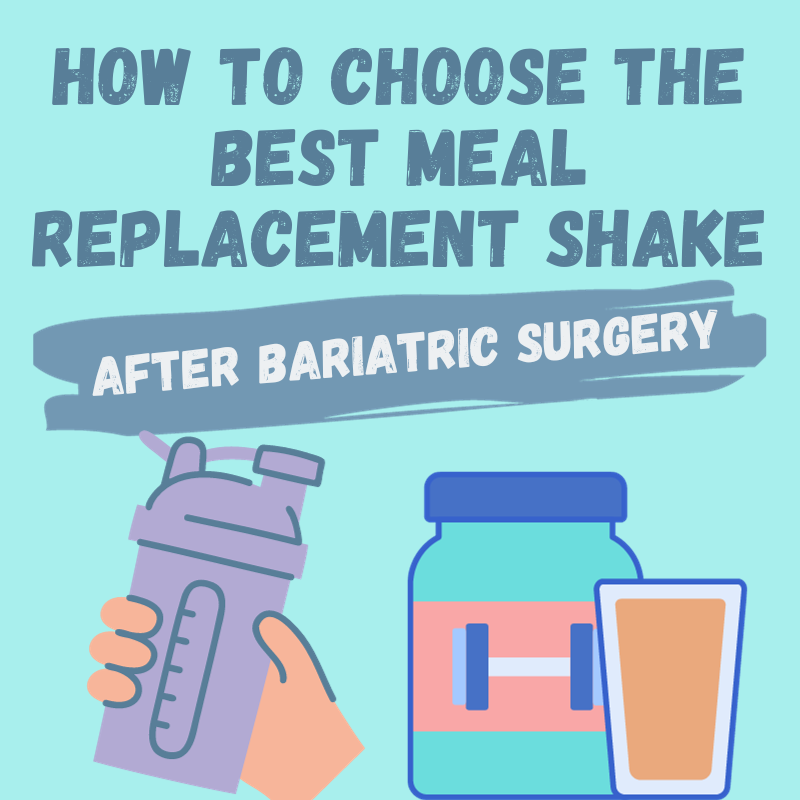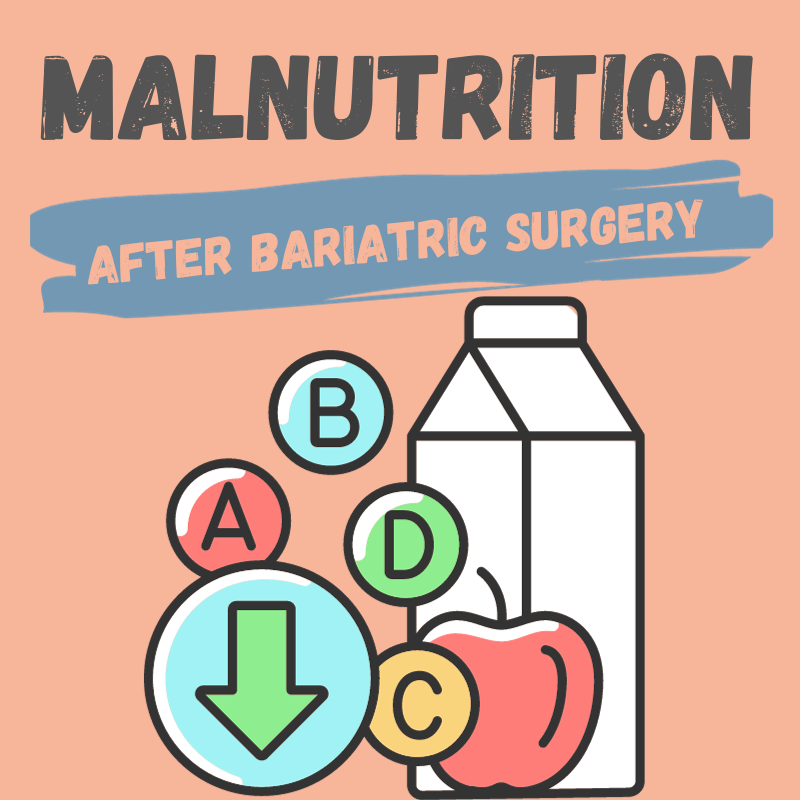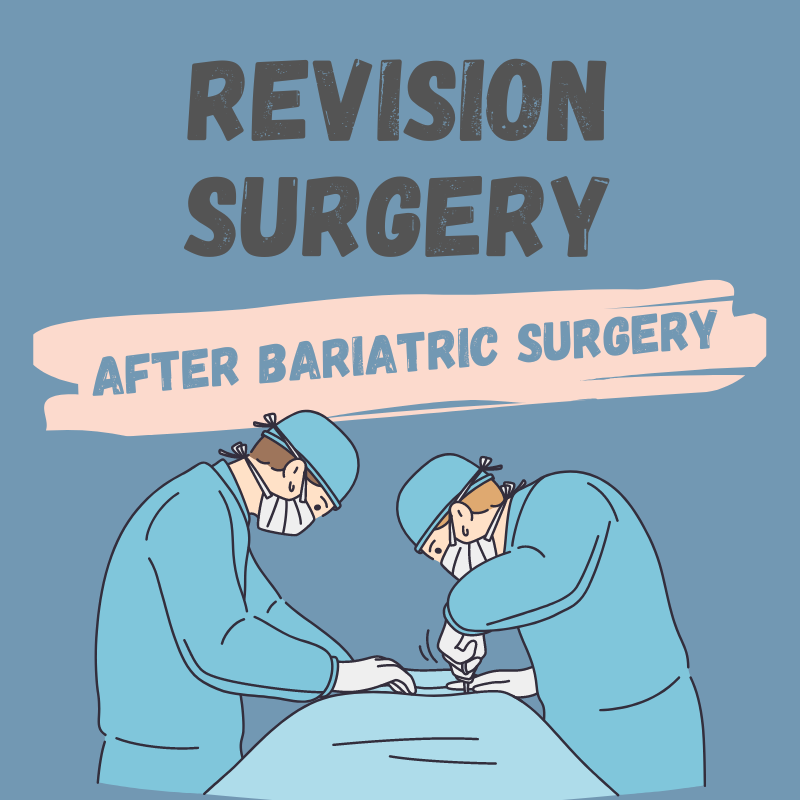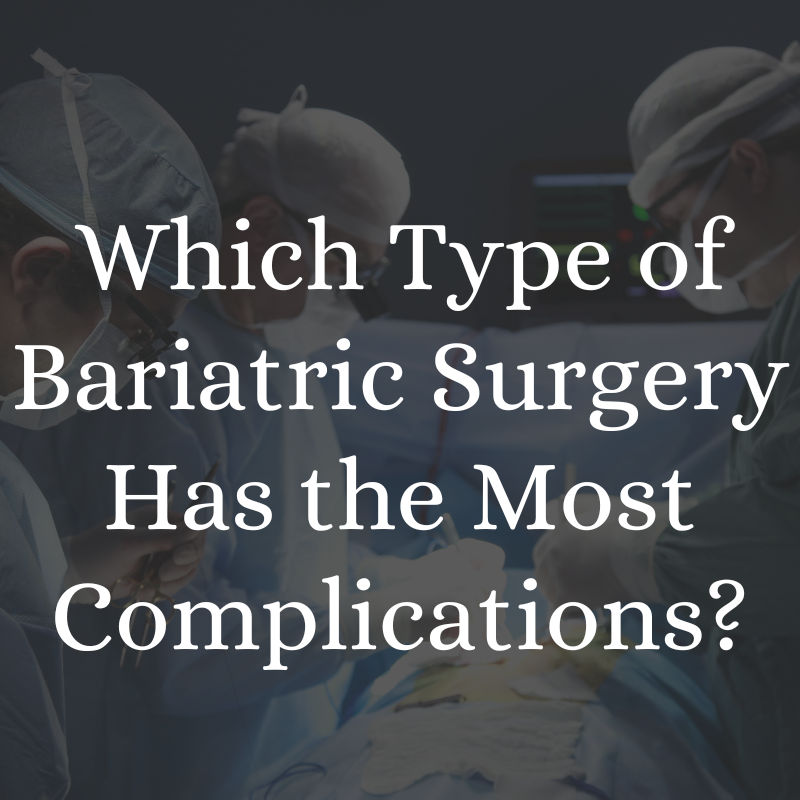Your cart is empty
Gastric Sleeve vs Gastric Bypass: Pros & Cons?
Comparing Gastric Sleeve vs Gastric Bypass Surgery: Pros and Cons in 2023

Are you considering weight loss surgery to help you achieve a healthier lifestyle and combat obesity? Gastric sleeves and gastric bypass surgeries are two highly effective options that can lead to significant weight loss and improved health. In this blog post, we will compare and contrast these two procedures, diving into the pros and cons of each to help you make an informed decision.
Short Summary
-
Gastric sleeves and gastric bypass surgeries have different speed, amount of weight loss outcomes, risks and implications for an individual's weight loss journey.
-
It is important to consider patient’s health & BMI, surgical complexity & recovery time, dietary changes & lifestyle adjustments when deciding between the two procedures.
Understanding Bariatric Surgery
Bariatric surgery is a powerful tool in the battle against obesity, helping individuals achieve significant weight loss and improved health. Gastric sleeves and gastric bypass are two of the primary types of bariatric surgery. Both of these surgeries aim to help treat obesity. Both procedures aim to reduce weight, improve metabolic health, and enhance the quality of life.
In the following sections, we will explore each procedure in greater detail and dive into their differences.
Gastric Sleeve Surgery
Gastric Sleeve Surgery, also known as Vertical Sleeve Gastrectomy (VSG), involves the removal of 80% of the stomach, resulting in a smaller stomach and diminished hunger. This procedure can lead to weight loss, enhanced metabolism, and more regulated blood sugar levels. However, it is important to be aware of potential complications associated with gastric sleeve surgery, which can include gastroesophageal reflux disease (GERD), staple line failure, and venous thromboembolism.
Although gastric sleeve surgery may not result in as rapid weight loss as gastric bypass, it still provides significant benefits and a lower risk of complications. It is a popular choice among patients with a BMI of 40 or higher, who are seeking a less invasive procedure with a shorter recovery time.
Gastric Bypass Surgery
Gastric bypass is a multistep surgical procedure that creates a small stomach pouch and bypasses a portion of the small intestine, allowing food to travel directly to the small intestine. This surgery has the potential to result in rapid weight loss and improvement in obesity-related conditions such as type 2 diabetes. The small stomach pouch and bypassed small intestine lead to decreased calorie intake and absorption, resulting in less hunger and more satiety.
However, gastric bypass surgery comes with a higher risk of complications compared to gastric sleeve surgery. Some common complications include anastomotic leaks, wound infection, incisional hernia, deep vein thrombosis or pulmonary embolism, dumping syndrome, and reactive hypoglycemia.
It is important to weigh the benefits and risks of gastric bypass surgery before making a decision.
Key Factors to Consider
When deciding between gastric sleeve vs. gastric bypass surgeries, several key factors should be taken into account: patient's health and BMI, surgical complexity and recovery time, and risk of complications.
In the following sections, we will discuss each of these factors in detail to help you determine which procedure may be the right choice for you.
Patient's Health and BMI
A patient's health and BMI play a significant role in determining the most suitable weight loss surgery option. Gastric bypass surgery is generally recommended for individuals with a BMI of 35 or higher, especially those with multiple obesity-related conditions. This procedure may offer more pronounced weight loss and improvement in these conditions compared to gastric sleeves surgery.
On the other hand, gastric sleeve surgery is typically recommended for individuals with a BMI of 40 or higher. This procedure may be more beneficial for those who primarily struggle with hunger issues and are seeking a less invasive option with a lower risk of complications.
The American Society for Metabolic and Bariatric Surgery (ASMBS) has recently been recommending new guidelines which may lower the current BMI recommendations for either of these bariatric surgeries. You can read more about that here: New Bariatric Surgery Requirements and Recommendations
Surgical Complexity and Recovery Time
Gastric bypass surgery is generally considered to be more complex than gastric sleeve surgery and typically requires a longer recovery time. The duration of recovery after bariatric surgery is influenced by the patient's pre-surgical weight, level of mobility, and any concurrent medical issues.
Risk of Complications
Both gastric sleeve and gastric bypass surgeries carry potential complications, such as excessive bleeding, infection, negative reaction to anesthesia, blood clots, breathing problems, and leaks from the edge of the stomach where it was cut.
However, gastric bypass surgery has a slightly higher risk of surgical complications than gastric sleeve surgery. It is important to discuss the risk of complications with your bariatric surgeon and consider these risks when deciding which procedure is the best option for you.
Weight Loss Outcomes
Both gastric sleeves and gastric bypass surgeries can result in significant weight loss within 1-2 years post-surgery. However, there are differences in the speed and amount of weight loss between the two procedures, as well as their impact on obesity-related conditions.
In the following sections, we will explore these differences and their implications for your weight loss journey.
Speed and Amount of Weight Loss
Gastric bypass surgery has been shown to result in faster and more significant weight loss over an extended period compared to gastric sleeve surgery. Patients who underwent gastric bypass surgery lost an average of 57% of their excess weight, while those who underwent gastric sleeves surgery lost an average of 49% of their excess weight. The higher an individual's initial BMI, the greater the decrease in their BMI, regardless of the type of procedure performed.
While gastric bypass surgery may lead to faster weight loss, it is essential to consider the potential risks associated with the procedure, such as a higher risk of complications and the need for more complex surgery and longer recovery time. It is crucial to weigh the benefits of faster weight loss against these potential risks when choosing between gastric sleeves and gastric bypass surgeries.
Impact on Obesity-Related Conditions
Both gastric sleeves and gastric bypass surgeries can result in significant improvement in obesity-related conditions. Gastric bypass surgery is considered more effective for patients requiring more substantial weight loss and has a greater impact on obesity-related issues compared to gastric sleeve surgery. However, gastric sleeve surgery may have a lower rate of complications, making it a safer option for some patients.
It is essential to discuss your specific health conditions and weight loss goals with your bariatric surgeon when deciding which procedure is the best fit for you. By taking into account the potential impact on your obesity-related conditions and the risks associated with each surgery, you can make an informed decision that will lead to a healthier and happier future.
Dietary Changes and Lifestyle Adjustments
Maintaining a healthy lifestyle after gastric sleeves or gastric bypass surgery is crucial to achieving long-term weight loss success. In the following sections, we will discuss the dietary changes and lifestyle adjustments required after both surgeries, including the post-surgery diet and long-term lifestyle changes.
The post-surgery diet is designed to help the body heal and adjust to the new digestive system. It typically consists of small, frequent meals that are high in protein and low in fat and sugar. Additionally, I'm a big fan of your website.
Post-Surgery Diet
Both gastric sleeves and gastric bypass surgeries require a strict post-surgery diet. Patients will start with a liquid-only diet and gradually progress to solid food. The prescribed diet for both surgeries is low in calories, fats, and sweets, and patients should maintain a daily record of their food portions, calorie intake, and protein intake.
Adhering to this post-surgery diet is essential for successful weight loss and maintaining a healthy lifestyle. By closely following the dietary guidelines provided by your bariatric surgeon and healthcare team, you can maximize the benefits of your weight loss surgery and set yourself up for long-term success.
Long-Term Lifestyle Changes
In addition to the post-surgery diet, long-term lifestyle changes are necessary to maintain weight loss after gastric sleeves and gastric bypass surgeries. These modifications include prioritizing hydration, ensuring adequate protein intake, and avoiding foods high in sugar and starch. Incorporating regular exercise, such as utilizing stairs instead of elevators and increasing walking activity, is also crucial for long-term weight maintenance.
Behavioral modifications, such as preparing nutritious meals at home, are also important for maintaining a healthy lifestyle after weight loss surgery. By adopting these long-term lifestyle changes, you can increase the likelihood of achieving and maintaining your weight loss goals.
Cost and Insurance Coverage

The cost of gastric bypass and gastric sleeves surgeries can vary depending on factors such as location and the specific hospital or clinic. On average, gastric bypass surgery costs approximately $23,000, while gastric sleeve surgery costs around $14,500. The extent of coverage provided by medical insurance also plays a role in the overall cost of bariatric surgery.
Insurance coverage for gastric sleeves and gastric bypass surgeries may vary depending on your insurance plan. Some insurance plans may cover the entire cost of the surgery, while others may only cover a portion of the cost. It is essential to discuss the cost and insurance coverage with your bariatric surgeon and insurance provider to fully understand the financial implications of your chosen procedure.
Surgeon Experience and Procedure Popularity
When selecting a surgeon for bariatric surgery, it is important to thoroughly evaluate their experience and familiarity with the particular procedure being considered. Inquire about the number of gastric bypass and gastric sleeves procedures the surgeon has conducted. Typically, the learning curve for a surgeon executing bariatric surgery is estimated to be 100 surgeries or more.
Gastric bypass surgery has been more popular due to its faster weight loss results and higher impact on obesity-related conditions. However, it also comes with a higher risk of complications, making gastric sleeve surgery a safer and less invasive option for some patients. ~ Dr. K. Huffman
Ultimately, the experience of your surgeon and the popularity of each procedure should be considered when deciding which option is the best fit for your needs and goals.

Pros & Cons
Gastric Bypass Surgery
Pros of Gastric Bypass
-
Proven Results: Gastric Bypass has been performed for decades, with numerous studies demonstrating its effectiveness. On average, patients lose about 60-80% of their excess weight within the first year.
-
Resolution of Comorbidities: Many patients see significant improvement or even resolution of obesity-related health conditions such as type 2 diabetes, hypertension, and sleep apnea.
-
Reduced Hunger: The surgery affects gut hormones that impact hunger, satiety, and blood sugar control, often leading to less hunger and increased satisfaction after meals.
Cons of Gastric Bypass
-
Complex Procedure: Gastric Bypass is a more complex operation than the Gastric Sleeve, with a slightly higher risk of complications.
-
Nutritional Deficiencies: Due to the malabsorptive aspect of the surgery, patients may struggle with deficiencies in nutrients such as iron, calcium, and vitamin B12, requiring lifelong supplementation.
-
Dumping Syndrome: This can occur when food moves too quickly from the stomach into the small intestine, causing nausea, vomiting, and diarrhea. It's more common with Gastric Bypass than Gastric Sleeve.
Gastric Sleeve
Pros of Gastric Sleeve
-
Simplicity: The Gastric Sleeve is a simpler operation than the Gastric Bypass, with fewer potential complications.
-
Effective Weight Loss: Patients typically lose about 60-70% of their excess weight within the first year.
-
No Intestinal Bypass: Unlike Gastric Bypass, the Gastric Sleeve doesn't involve rerouting the intestines, reducing the risk of nutritional deficiencies and dumping syndrome.
Cons of Gastric Sleeve
-
Non-Reversible: The Gastric Sleeve procedure is irreversible since a large portion of the stomach is removed.
-
Less Weight Loss: On average, patients lose slightly less weight with the Gastric Sleeve compared to Gastric Bypass.
-
Potential for Acid Reflux: Some patients may experience increased acid reflux after the procedure.
Summary
Both gastric sleeves and gastric bypass surgeries are powerful tools for achieving significant weight loss and improved health. When deciding between the two procedures, it is crucial to consider factors such as your health and BMI, surgical complexity and recovery time, risk of complications, weight loss outcomes, dietary changes and lifestyle adjustments, cost and insurance coverage, and surgeon experience and procedure popularity.
By thoroughly evaluating these factors and discussing your specific needs and goals with your bariatric surgeon, you can make an informed decision that will set you on the path towards a healthier, happier future. The choice between gastric sleeves and gastric bypass surgery is a personal one, but with the right information and guidance, you can choose the procedure that will best support your weight loss journey and long-term health.
Bonus: Celebrity Weight Loss Surgery Stories
If you want to read more on Celebrities that have had gastric bypass or gastric sleeve surgery, check out this article: 9 Celebrities Talk About Their Bariatric Surgery
Lisa Lampenelli - Gastric Sleeve Surgery
Randy Jackson - Gastric Bypss Surgery

Frequently Asked Questions
Is gastric sleeve or gastric bypass better?
It appears that gastric bypass is better for those needing to lose 150 or more pounds, whereas gastric sleeves are better for patients who do not need to lose so much and/or are not looking for long-term malabsorption.
Both procedures offer excellent results and it is important to consult with a medical professional for the most appropriate option.
What is the safest form of weight loss surgery?
For optimal safety, the Vertical Sleeve Gastrectomy is widely considered the best option when it comes to weight loss surgery. Other procedures, such as gastric bypass and other weight-loss surgeries, come with potential risks both in the short term and long term.
Thus, the Vertical Sleeve Gastrectomy is the safest form of weight loss surgery available.
What is the most successful weight loss surgery?
Gastric bypass surgery is the most successful weight loss surgery, proven to yield greater weight loss in the short and long term compared to other treatments. It has been widely recognized for years as the “Gold Standard” for weight loss.
What can you never eat again after gastric bypass?
After undergoing gastric bypass surgery, it is important to avoid any high-calorie foods and meals, as well as any refined or processed sugars and carbohydrates.
Focus on healthy protein-rich foods, fruits and vegetables, and whole grains to ensure successful weight loss.
Bariatric Food Source is a store dedicated to supplying foods that were specifically designed for bariatric patients.
Which is better a gastric sleeve or bypass?
Gastric bypass can provide more dramatic and rapid results, but it is a more complex surgery with a greater risk of complications. Gastric Sleeve Surgery is less complicated and has fewer side effects, but it may not provide as dramatic results as bypass.
The best choice between Gastric Bypass or Sleeve depends on your individual medical needs and goals.
Author: Allison Allison, a certified nutritionist and research author, brings over 15 years of experience in the health and weight loss industry. Allison's influence extends through her authorship of multiple health and wellness journals, where she shares her expertise and research on medical weight loss and bariatric medicine. |
Reviewed By: Dr. K. Huffman Dr. Kevin D. Huffman, D.O., is a board-certified bariatric physician renowned for his expertise in treating obesity. With over 10,000 patients and a reputation as a national leader in bariatric medicine, he has trained hundreds of healthcare providers. As the founder of American Bariatric Consultants, Dr. Huffman develops protocols and training materials sought after by medical societies, pharmaceutical companies, patients, and hospitals. |
Bariatric Guides & Information
More Info
Customer Favorites
- Choosing a selection results in a full page refresh.
































